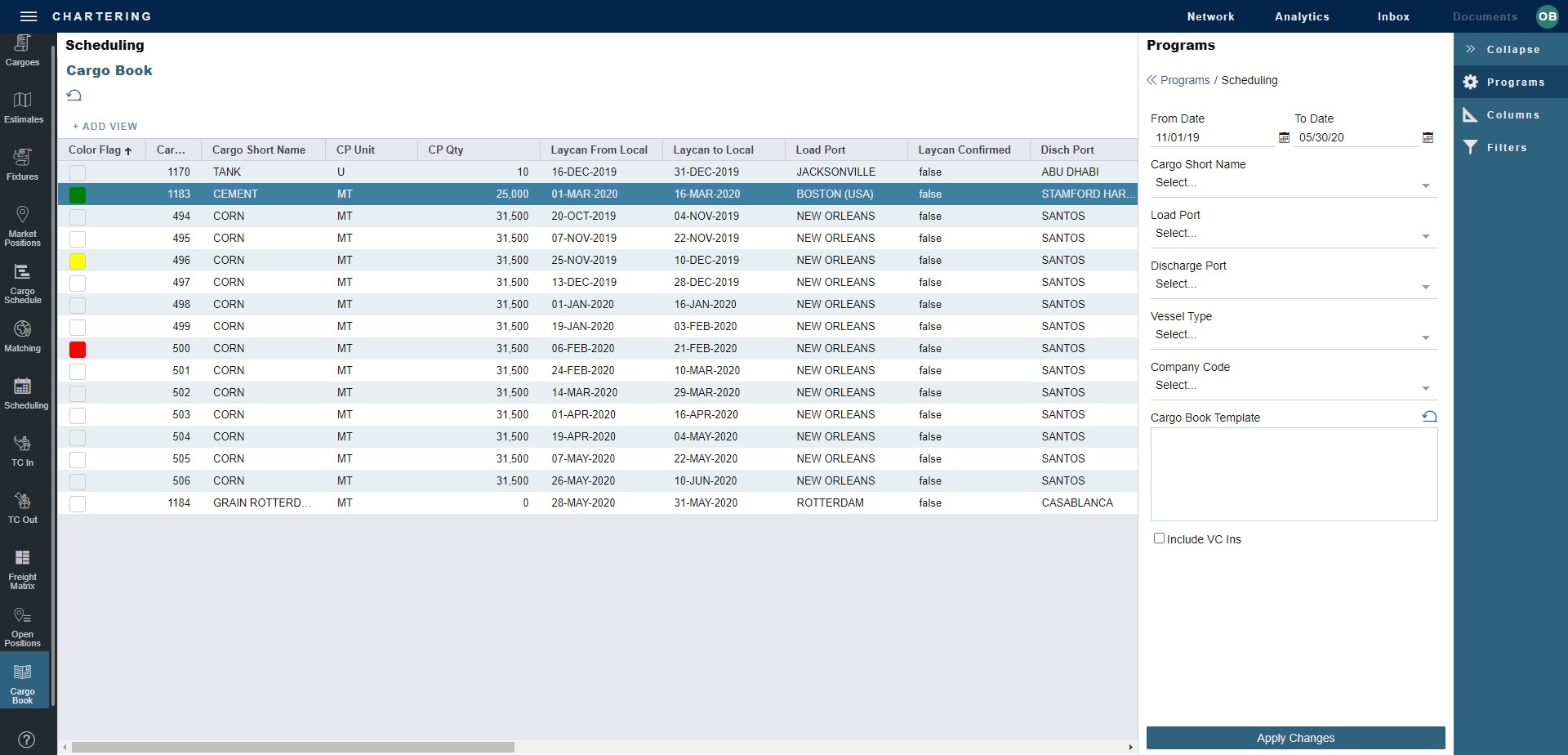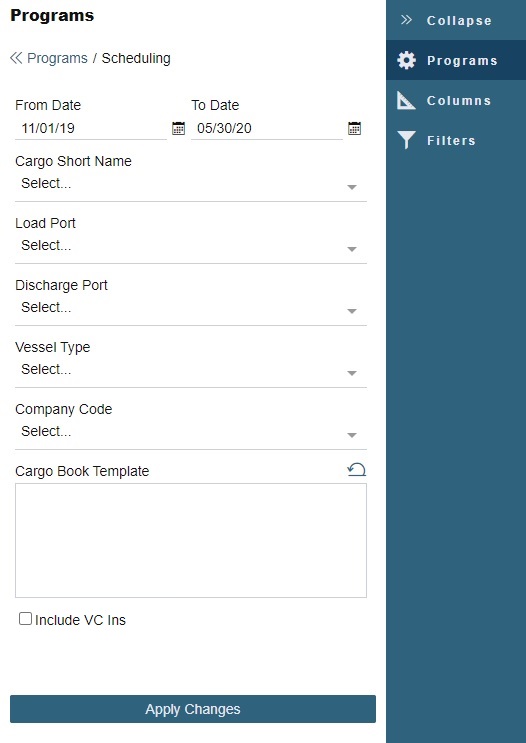IMOS - Cargo Book
Home > Chartering > Cargo Book
You must have the Scheduling Module Right selected, under Quick Links in Chartering. Your configuration might differ from the information shown.
You can work from the separate Cargo Book, which is the same as the Cargo Book in Scheduling.
On the main menu, under the Chartering module → click on Cargo Book.
On the Chartering quick links, click
 .
.

As with any other list, you can select, adjust, pin, filter, group, and sort columns, and save user views. User views are saved to the current program and also appear in Scheduling.
If you have IMOS Cargo Matching, you can also design the list in IMOS, search columns, and export.
Flag rows with color to highlight levels of opportunity. To toggle through colors, in the Color Flag column, click
 . It changes color in succession:
. It changes color in succession:🟩 Green
🟨 Yellow
🟥 Red
 Grey again
Grey again
To view additional information about a record, defined by the current program’s Template field, hover over a row.
Cargo Positions
Cargoes appear based on filters in the Programs panel as well as filters applied to the current list view.
In the Cargo Book, depending on the Cargo Status, you can right-click a row to:
Programs Panel
The Programs panel appears as follows:

To apply filters to all list user views associated with the current program, enter parameters and then click Apply Changes.
To switch to a different program, click << Programs and then click its card.
From Date defaults to 2 weeks before today, and To Date defaults to 1 year from today.
In many situations, setting the date range to approximately 2 months before today through 4–6 months from today will include most open positions.
New and old TC vessels appear in Scheduling based on their Delivery and Redelivery dates. If there is any overlap with the date range filter, the vessel will appear.
